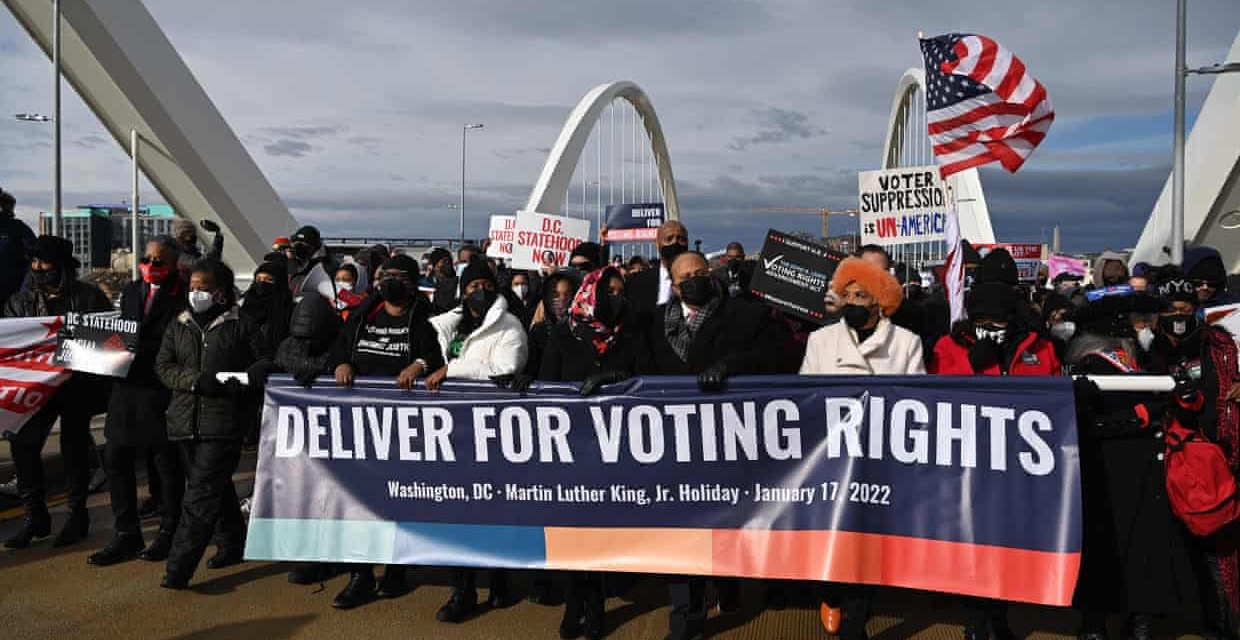Marchers for voting rights cross the Frederick Douglass Memorial Bridge in Washington, D.C. on Martin Luther King Day, January 17, 2022 (Mandel Ngan/AFP/Getty)
In another blow to voting rights, the US Supreme Court has restored an Alabama Congressional map accused of racial discrimination.
In a 5-4 vote, the Court stayed the 3-0 decision of a Federal District Court that the map had diluted representation of Black voters. The justices said they would hear the State of Alabama’s appeal of the ruling, but did not set a date.
Chief Justice John Roberts joined the three moderate justices in dissent against the conservative majority.
The stay is the latest weakening of the 1965 Voting Rights Act by the Court. Rulings have blocked the requirement for federal approval of changes to state and local voting laws in parts of the country with a history of racial discrimination. The ability of minority groups to challenge voting restrictions has been limited.
In the past year, legislation by Republican-controlled states has limited and blocked voter access after Donald Trump falsely claimed a “stolen election” in November 2020.
Republicans in the US Senate, enabled by two dissident Democratic senators, have repeatedly blocked legislations to protect voting rights.
See also Republicans Maintain Blockade of Voting Rights
EA on Monocle 24: The Fight for Voting Rights in Georgia
“A Disservice to Black Alabamians”
Under the new Alabama map, Black voters — who make up 27% of the state’s voting-age population — are aligned as the majority in only one of seven Congressional districts. The lower court, citing the Voting Rights Act, ordered the legislature to create a second district “in which Black voters either comprise a voting-age majority or something quite close to it”.
Conservative Justice Brett Kavanaugh, joined by Smauel Alito, maintained that the lower court had acted too closely to a forthcoming election: “Late judicial tinkering with election laws can lead to disruption and to unanticipated and unfair consequences for candidates, political parties and voters, among others.”
Chief Justice Roberts said the lower court’s ruling should remain in place while an appeal was heard, as the court had “properly applied existing law in an extensive opinion with no apparent errors for our correction”.
Justice Elena Kagan went farther:
It does a disservice to the district court, which meticulously applied this court’s longstanding voting-rights precedent.
And most of all, it does a disservice to Black Alabamians who under that precedent have had their electoral power diminished — in violation of a law this court once knew to buttress all of American democracy….
Alabama is not entitled to keep violating Black Alabamians’ voting rights just because the court’s order came down in the first month of an election year.

